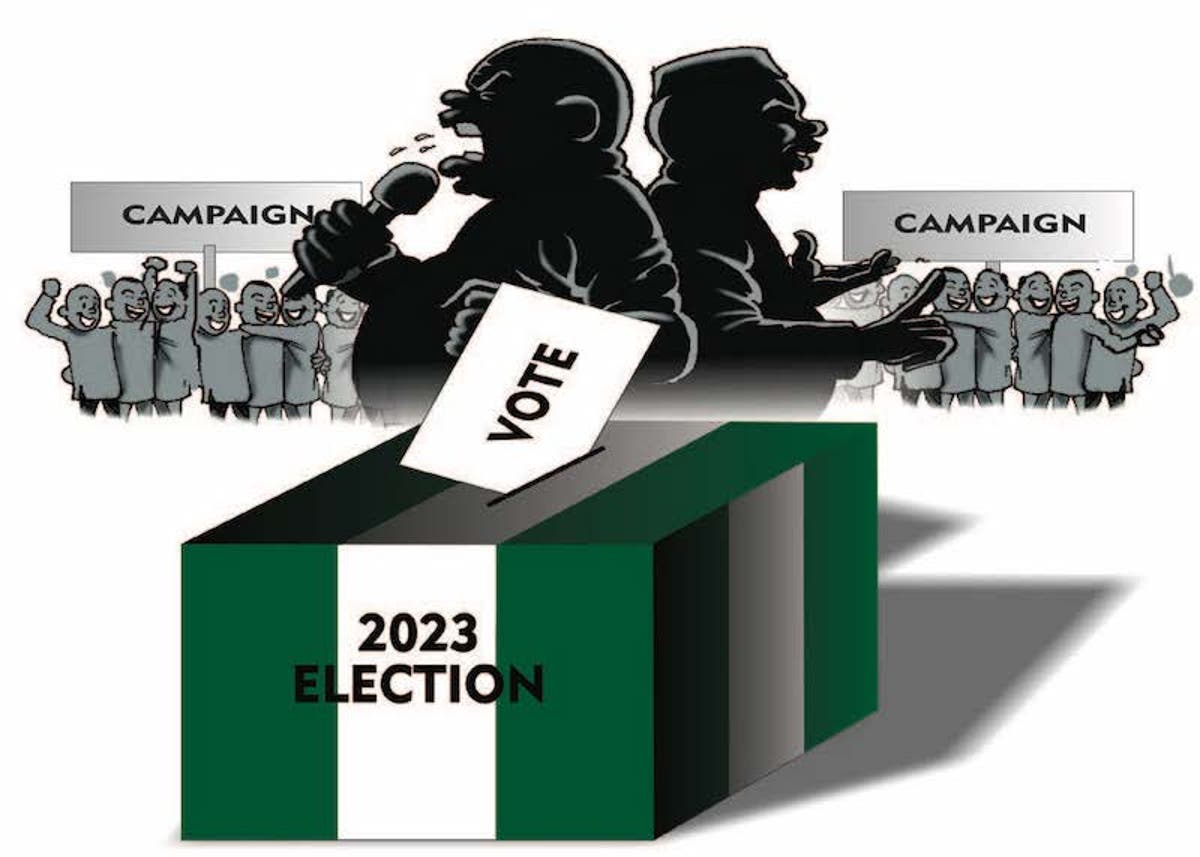2023: Campaign advertisements must be decent
Following the recent green light given by the Independent National Electoral Commission for start of campaigns for the 2023 general elections, our mass media – radio, television, newspapers, etc., will soon be inundated with political advertisements. And the question is, shall the parties, candidates and supporters conduct decent advertisement campaigns or shall it be characterised […]

Following the recent green light given by the Independent National Electoral Commission for start of campaigns for the 2023 general elections, our mass media – radio, television, newspapers, etc., will soon be inundated with political advertisements. And the question is, shall the parties, candidates and supporters conduct decent advertisement campaigns or shall it be characterised by what we see in social media (a no holds barred platform) where mockery, ridicule and even bare-faced hatred are the defining features?
With cutting-edge technology, it is relatively easy in this digital era to manipulate, distort and misrepresent an image to achieve a certain objective. Admittedly, the stakes are seemingly high for especially the two main political parties, namely, the ruling All Progressives Congress (APC) and the main opposition Peoples Democratic Party (PDP).
- Many flee as bandits attack community, kidnap 13
- Suspected attackers of Senator Ubah arrested – Soludo
Much as the elections present a fierce battle, it is by no means a do-or-die battle as it is now generally considered in some quarters. Rather, it should be viewed as a healthy competition in which the goal is the progress and general well-being of the populace. Therein lies patriotism, service to fellow men and if I may humbly add, to the Lord.
An important step towards this ideal position is in the conduct of political campaigns by the actors; a key aspect of which is advertisements. Flipping through social media, you would be forgiven to conclude that there are no regulations guiding advertisements in general in Nigeria. It turns out, however, that there are quite a number of regulators whose statutory function impinges in one way or other on political advertisements being put out for public consumption to ensure that they meet minimum standard of decency.
Chief among these is the erstwhile Advertising Practitioners Council of Nigeria (APCON). Its director in charge of the northern region, Mr Ralph Anyacho, says the organisation’s hands have been strengthened with a recent law that simultaneously changed its name to conform with its new powers. It is now the Advertising Regulatory Council of Nigeria (ARCON). The new ARCON came into effect in August of this year. Anyacho insinuated that it is now ready to not only bark but also bite, adding that its new director general, Dr. Olalekan Fadolapo, is all set to match words with action.
A pointer to this is the legal action it has instituted against Meta (owners of Facebook) for the various advertisements it is carrying on its platform without first sending them to the relevant authority (ARCON) for necessary approval. It has also frowned at the use of foreign models and foreign production of advertisements meant for the Nigerian audience, outlining penalty fees for infringements.
The Code of Advertising Practice on political advertisements stipulate in its Article 76, that, ‘’Advertisements for political activities, political advertisements, advertising and marketing communication shall be issue-oriented and devoid of an abusive statement or reference. It shall not employ false, distorted or unsubstantiated claim or contain misrepresentation’’.
Article 77 says, “Every political advertisement, advertising and marketing communication shall clearly identify sponsoring organization or individual, verifiable contact details including names, physical address, telephone numbers, etc., shall be submitted. Article 78, states that “Political advertisement, advertising and marketing communication shall not explicitly or implicitly adversely exploit matters relating to ethnicity, religion or any other sectional interest.”
In addition to complying with the Advertising Code of Practice, all concerned parties are also mandated to comply with the Nigerian Broadcasting Code, the NPO Code of Practice and the Electoral laws “in all matters relating to political advertising.”
Furthermore, the regulations for political advertisement require that it must not contain “Any description, claim or illustration which can convey an erroneous or misleading impression about the person or service advertised or about the suitability of the idea or agenda recommended. Any description, claim or illustration made in any political advertisement shall be subject to empirical proof or capable of substantiation if demanded. Evidence shall be required in respect of superlative or comparative claims. Testimonials or endorsements made in any political advertisement shall be subject to proof.”
More importantly, all advertisements according to ARCON must be approved by the Advertising Standard Panel (ASP) and a certificate issued to that effect after vetting.
There are minimum stipulated penalties for any media house, advertiser, advertising practitioner and advertising agency that publishes, aids, abets, authorises, causes or places for publication a political advertisement without an ASP certificate. The aforementioned requirements rolled out by the transformed Advertising Regulatory Council of Nigeria (ARCON), supported by its new 2022 Act/law, are sufficient to make us have clean, decent political advertisements and campaigns if they can be followed through to the later and enforced accordingly.
Victoria Ngozi Ikeano writes from Lafia
